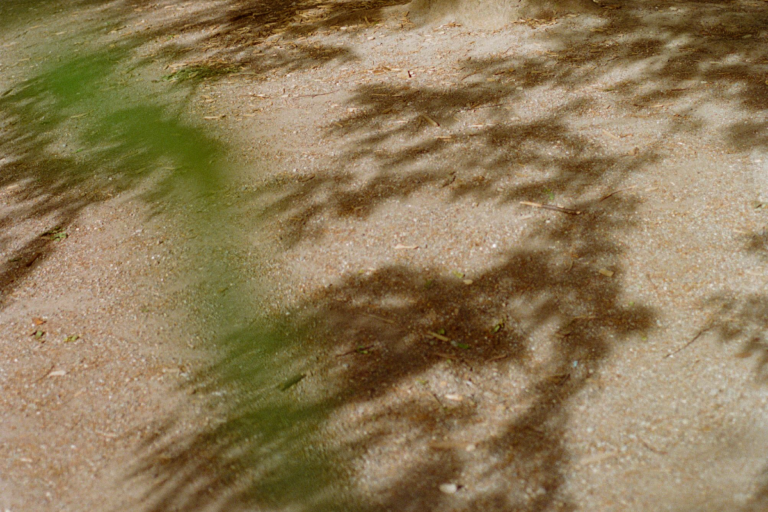
Image by Ushan Gunasekera/Flickr, Attribution-NonCommercial-NoDerivs.
The Sweet Confinement of Your Aloneness
There are times when you find yourself completely surrendered to the power of a moment. David Whyte’s voice filled the air one morning, as wave after wave of sound was the siren song turning my head. This was one of those moments. I plunged into the abyss of his words. And in wordless thought, I knew instinctively that here was another piece of home. I was captured, mulling over the rich tones of a haunted message:
“Sometimes it takes darkness and the sweet / confinement of your aloneness / to learn / anything or anyone / that does not bring you alive / is too small for you.”
Listening to David Whyte was a religious experience. While other Muslims knelt on a prayer mat, I answered to another call:
“Sometimes it takes darkness and the sweet / confinement of your aloneness…”
I am a Muslim reformer, a conduit fostering a renewed spirit of questioning to a faith that was once rich with beautiful questions. The path I’m on is a painfully solitary one. It’s far removed from the fanfare of bylines and adoration of followers. My day-to-day is a space-time blur that finds me deeply knotted in my thoughts. And having been here for so long, I can no longer separate the film of normalcy with this new self marked by tireless inquiry and endless leaps of faith.
Though I know the world is carried by others who raise the torch of a question mark, others few and far who share our passion, it is still largely a very singular path. That is the most difficult thing about being a Muslim reformer — the vast loneliness of it.
When I heard David Whyte’s powerful line on darkness and being truly alive, there was a promise that I wasn’t quite alone in this sweet confinement. Here was this deeply grounded man, oak born of spirit and earth whose voice anchored me in the stillness and peace of a truth I felt so alone in living out.
A Radical Solitude
Referencing his friend and poet John O’Donohue, David Whyte points to a necessary task of a “…radical letting-alone of yourself in the world. Letting the world speak in its own voice and letting this deeper sense of yourself speak out.”
The aloneness is clearly essential. But why is this state of solitude — something that I would call both a gift and curse — so heavily critical for free thinkers? Sharing his belief on the value of silence, David reflects:
“In silence you find the death of the periphery, the outside concerns and the place where you’ve been building your personality and where you’ve been building who you are starts to atomize and fall apart…that giving over to something that seems like it’s going to be undermining you to begin with and lead to your demise. And the intuition unfortunately is correct. You are heading to your demise; it’s leading to a richer, deeper place that doesn’t get corroborated very much in our everyday outer world.”
Birthing another powerful theme in the conversation, it’s the aloneness that allows us to ask a “beautiful question.” The power of that question is in the asking, and not necessarily in the immediacy of any answers.
My own ability to invoke beautiful and more powerful questions over time is linked to the vast isolation that is a graveyard of the deconstructed self. Questions like, why are we experiencing the most chaotic outburst of religious fanaticism today during the most innovative period in modern history? Or, how can we look to past Islamic civilizations as a torch for moving out of this darkness? And, how can we use the tapestry of Islam’s origin story to weave a new narrative?
These are the questions that can be asked once “darkness and the sweet confinement of your aloneness” teach that a fixed identity is too small for you. It cannot bring you alive. It is the space in which you’re free to move outside yourself so that you can better survey the landscape that includes your own being.
The Self as a Moveable Frontier
David Whyte uses the term “a moveable frontier” to speak of his own complex linguistic identity. But to think of the self as a moveable frontier is a powerful crack in the gods our identities become, and the altars upon which we sacrifice beautiful questions.
That takes deep meditative attention, a space that is provided only in solitude. As David Whyte adds:
“As you deepen this intentionality and attention, you started to broaden and deepen your own sense of presence…The only place where things were actually real were at this frontier between what you think is you and what you think is not you.”
The duality of a real self versus a constructed self is the most challenging obstacle in the last evolution of man. It’s a complex labyrinth of illusion between a self that is awake and a shadow self that merely exists. The shadow self is a tulpa, an imaginary construct that’s real only because we believe it to be real. But alone in a tundra of ice and dark where there is nothing for it to feed off it, it eventually succumbs to the nothingness by becoming part of it. It atomizes.
Instead we have something transformative. We have something exploratory and full of possibility. We have a “sense of horizon, distance and invitation” that offers the vastness of space needed to meet the greatness we know lies within us.

